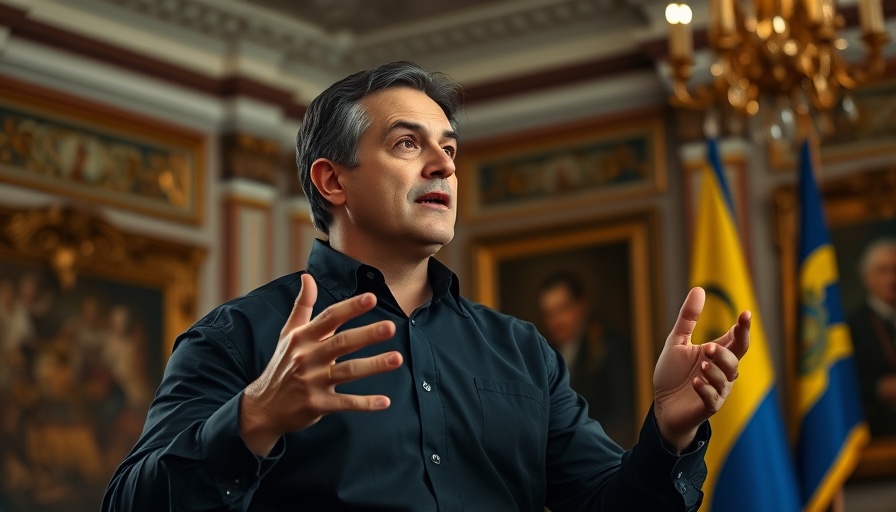
Understanding Europe’s Push for Trump in Ukraine-Russia Talks
As tensions continue to rise between Ukraine and Russia, Europe is grappling with an unexpected diplomatic dilemma: the necessity of involving former U.S. President Donald Trump in discussions about the conflict. Trump's potential re-emergence on the political scene provides a unique lens through which the West may navigate the complexities of Eastern European geopolitics.
This proactive approach is rooted in the reality that Trump's previously unpredictable foreign policy decisions had significant ramifications during his presidency. Nations across Europe are eager to manage their relationship with the U.S. in a way that secures solidarity and coordinated actions against Russian aggression. The notion of a Trump-led dialogue gives weight to the idea of leveraging U.S. resources, economic clout, and military strategies to stabilize the region.
What Trump's Involvement Could Mean for Global Diplomacy
Trump’s involvement could shift global diplomacy in unexpected directions. Unlike typical political leaders, Trump’s straightforward and often brusque manner challenges diplomatic norms. His direct communication style resonates particularly well with segments of the global population disenchanted with traditional forms of governance and international communication.
Consider the example from his previous administration, where Trump adeptly navigated complex scenarios to forge partnerships, even amidst controversy. A return to power might lead to a more unorthodox yet potentially effective approach to managing the crisis at hand.
Partisan Politics: The Double-Edged Sword
However, Trump's possible involvement in these delicate negotiations is not without its challenges. His administration's relationships often fell victim to deep partisan divides, raising questions about whether a Trump-led effort would effectively unite narratives or fuel further tension among allies. The rhetoric of his previous campaigns, particularly aimed at Europe and NATO, could resurface, complicating the scenario.
As Europe contemplates the risks associated with Trump’s style, scrutinizing past actions and potential repercussions is essential. This lingering uncertainty may present a stark contrast to the traditional diplomatic approaches that many in Europe have long relied upon.
Historical Context: Why Europe Needs a US Ally
Historically, the U.S. has positioned itself as a pivotal ally to European nations. Following the Cold War and through various conflicts, the partnership has proved advantageous for both sides. However, the unpredictability of American politics raises concerns about future engagement.
This situation is particularly crucial as Europe faces the challenge of unifying against Russia's military advancements, which threaten European stability. Europe's engagement in a Trump-led initiative might ensure U.S. military support while fortifying NATO's position in Eastern Europe.
Looking Ahead: Future Diplomatic Strategies
Ultimately, the conversation surrounding Trump's involvement encapsulates broader discussions related to foreign policy's trajectory in a changing global landscape. Should Trump become an influential figure again, European leaders will need to engage in strategic planning that balances diplomacy with their existing alliances, ensuring their interests are at the forefront.
Conclusion: Why It Matters
The outcomes of this potential diplomatic engagement may have far-reaching implications. For business leaders and stakeholders in sectors like tech and venture capital, understanding the political climate can inform corporate strategies and investment decisions. The ever-evolving nature of international relations emphasizes the need for vigilance and adaptation; organizations should prepare for shifts that may arise from renewed bipartisan stances on foreign policy.
In light of these dynamics, engaging in continuous dialogue and maintaining robust international relationships are paramount. As news develops, consider how your positions in industries might intersect with these geopolitical changes and the way they shape future marketplace trends.
 Add Row
Add Row  Add
Add 



Write A Comment